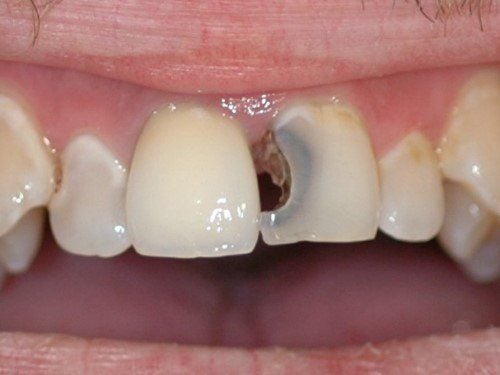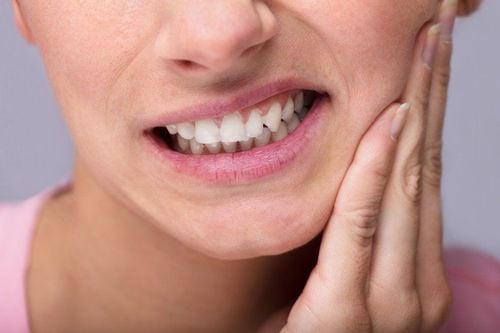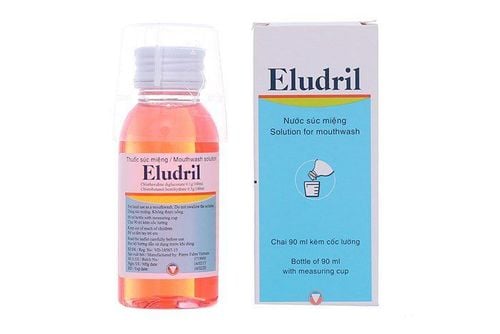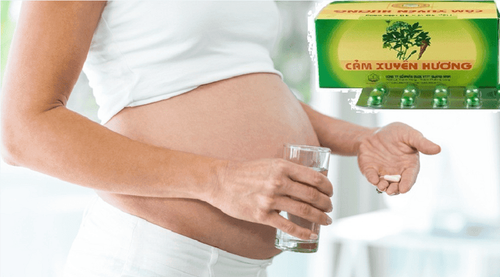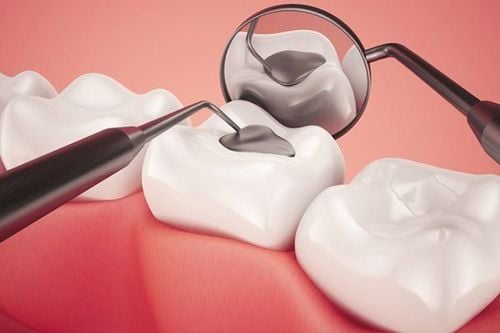This is an automatically translated article.
The article was professionally consulted by Doctor Tran Lam Khoa - Vinmec Central Park International General Hospital.
Pregnant women are at risk of dental diseases due to hormone changes and calcium deficiency. In addition to causing inconvenience in life, tooth decay in pregnant women can increase the risk of premature birth for the fetus. Many pregnant women want to go for dental fillings, but wonder if they are safe during pregnancy?
1. Why are pregnant women prone to dental problems?
Regular dental check-ups are extremely important for everyone, especially pregnant women. The reason is that during this period, the hormones Progesterone and Estrogen increase, promoting circulation and bringing more blood to the gums. As a result, the gums will swell and easily react with bacteria, increasing plaque.
In addition, the amount of calcium - the most important factor for strong teeth in the body of pregnant women often changes constantly, thereby increasing the risk of dental diseases. In perfectly healthy women, this change is very subtle, but for women (with reduced calcium stores), the amount of calcium in the mother's body can be greatly reduced during pregnancy.
The fetus at 24 - 25 weeks old is the time when the skeletal system is forming strongly. The amount of calcium needed to form the baby's bones is obtained from the mother's body. If there is not enough calcium in the mother's blood to supply, the body will mobilize calcium from the bones, first of which is the bone tissue of the upper and lower jaw.
Another common problem during pregnancy is dry mouth. During pregnancy, the amount of saliva secreted decreases. Saliva contains many components that strengthen tooth enamel, preventing the appearance of tooth decay. When the amount of saliva secretion decreases, the risk of tooth decay in pregnant women will also increase.
During pregnancy, maternal infection in any part of the body poses potential risks to both mother and fetus. Pregnant women, if untreated, have a higher risk of giving birth prematurely.
See more: Pregnant women are prone to dental disease, babies are more likely to be born prematurely, have tooth decay very early

2. Is it possible to seal teeth while pregnant?
2.1 What is dental bonding? Dental fillings, also known as fillings, are methods of filling the gaps of teeth with specialized dental materials, with the aim of restoring teeth that have been damaged by decay, bringing back normal function. like real teeth.
In addition, dental fillings cover a protective layer on the surface of the molars to help prevent the residence of bacteria.
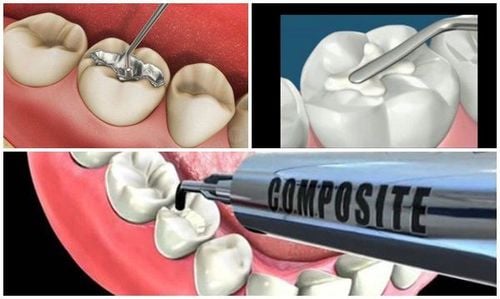
2.2 Can I have teeth when I'm pregnant? Along with the development of science and technology, more and more safe oral treatment methods are applied. It is clear that not all oral treatments are recommended for pregnant women.
However, pregnant women can still fill and seal decayed teeth. When the teeth have decay (moderately, not causing pain), pregnant women can completely perform dental fillings to solve their dental problems.
Dental fillings during pregnancy are completely possible and should be filled to prevent tooth decay from spreading to the pulp causing pulpitis. Especially during the 21st week of pregnancy (the second trimester of pregnancy) is a period when many pregnant women can tolerate more difficult interventions such as tooth extraction or minor surgery.
Trắc nghiệm: Bạn có hiểu đúng về dấu hiệu mang thai sớm?
Các dấu hiệu mang thai sớm không phải chỉ mỗi trễ kinh mà còn có rất nhiều dấu hiệu khác như xuất huyết âm đạo, ngực căng tức,… Điểm xem bạn biết được bao nhiêu dấu hiệu mang thai sớm thông qua bài trắc nghiệm này nhé!
If you do not use local anesthetic or take X-rays, pregnant women can rest assured. In some cases, local anesthetics and X-rays are needed. This is probably the thing that worries and worries pregnant women the most. Theoretically this could work. However, it should be noted:
Dental anesthetic theoretically has no effect on the fetus, because this is only a local anesthetic, the effect is very mild, within 1 hour it is completely dissolved. traces left. Therefore, the filling of the teeth should not cause any problems for the baby. However, the first 3 months of pregnancy are extremely important months in the formation of the baby's body, so treatment should be limited during this period. The commonly used local anesthetic is Lidocaine, which is a group B drug classified by the FDA in pregnancy, so it can be used during pregnancy. X-rays: Although x-rays used in dentistry have a very low density, their use should be limited, unless required. In fact, dentists can still treat many cases without the help of X-rays, especially in simple interventions such as fillings. If only X-ray is taken without contrast injection, it will not affect the fetus. During pregnancy, a woman's body has many disturbances, along with hormone changes, so it is easy to get gingivitis, causing bleeding gums and a number of other dental problems. Therefore, in addition to keeping oral hygiene clean, pregnant women should visit the dentist periodically to get tartar, tartar, avoid plaque to limit dental problems. In addition, early detection to handle dental problems will also contribute to better health care for both mother and fetus.
Please dial HOTLINE for more information or register for an appointment HERE. Download MyVinmec app to make appointments faster and to manage your bookings easily.




